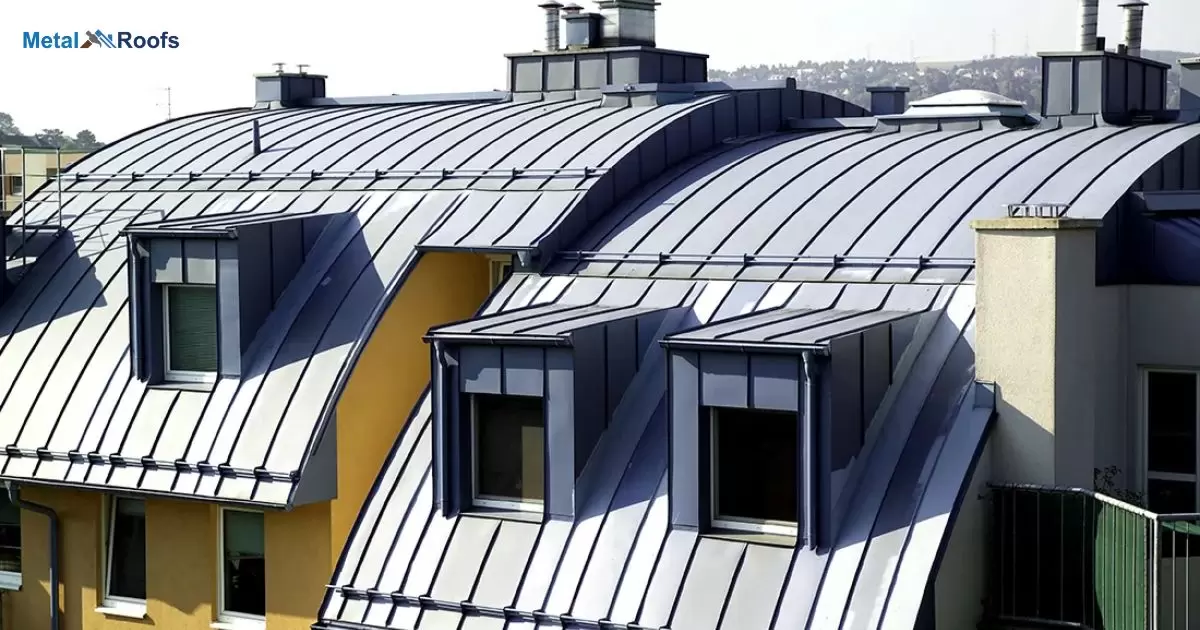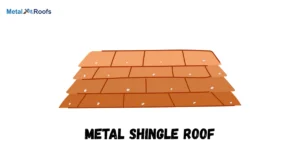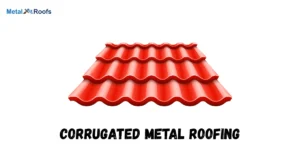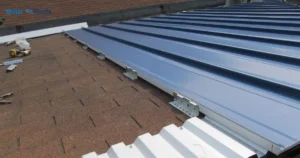Gauge metal measures roof panel’s thickness. Thicker gauge is stronger, costlier. Common gauges: 29, 26, 24, 22. Gauge 29 is residential standard. Gauge 26 handles moderate snow loads. Gauge 24 bears heavy snow, high winds. Gauge 22 is for commercial buildings.
Choosing right metal gauge is key. Gauge affects roof strength, cost. What gauge metal for roof? Factors: climate, building type. Wrong gauge risks roof failure. Proper gauge ensures safe structure.
Metal roofs, durable and long-lasting, require proper gauge selection. Thinner gauges are lighter and cheaper, while thicker ones bear heavier loads. Hot climates favor lower gauges; cold regions, higher. Correct gauge prevents roof failure, along with strategic metal roof screw placement.
Key Takeaways
- Metal roof gauge selection depends on material, design, and climate.
- Steel ranges from 22 to 29 gauge, thicker gauges offer more durability.
- Aluminum and copper also vary in thickness.
- Consult a professional for the best gauge based on specific needs and budget.
Roof Thickness Gauge
When it comes to roof thickness gauge, it’s vital to consider a few key points. Steel roofs typically range from 22 to 29 gauge, with lower numbers indicating thicker metal for increased durability. Thicker gauges offer better resistance to damage, but they might be heavier and pricier.
Aluminum and copper roofs also come in different thicknesses, with similar factors to consider. For the best gauge choice, consulting with a roofing professional is essential, as they can assess specific needs, local weather conditions, structural requirements, and budget constraints.
26 Vs 29 Gauge Metal Roof
| 26 Gauge Metal Roof | 29 Gauge Metal Roof |
| Thicker and Stronger | Thinner and Lighter |
| Higher Durability | Lower Cost |
| More Resistant to Damage | Economical Option |
| Ideal for Harsh Climates | Suitable for Moderate Climates |
| Generally More Expensive | Budget-Friendly Option |
When comparing 26 and 29 gauge metal roofs, the main difference lies in thickness. 26 gauge is thicker and more durable than 29 gauge. Thicker metal provides better resistance to damage from elements like hail and wind. It’s a reliable choice for areas prone to harsh weather conditions.
29 gauge is lighter and less expensive, suitable for budget-conscious projects with moderate weather exposure. Consult with a professional to determine the best gauge based on your specific needs and budget constraints.
Factors To Consider For Gauge Selection
When choosing the gauge for your metal roof, consider the type of material, roof design, and local climate. Steel roofs come in gauges ranging from 22 to 29, with lower numbers indicating thicker metal and greater durability.
Thicker gauges can withstand more damage but may be heavier and pricier. Similarly, aluminum and copper roofs offer varying thicknesses, each with its own durability and cost considerations. Consulting a roofing professional ensures you select the right gauge based on your specific needs and budget.
Common Gauge Options For Roofing
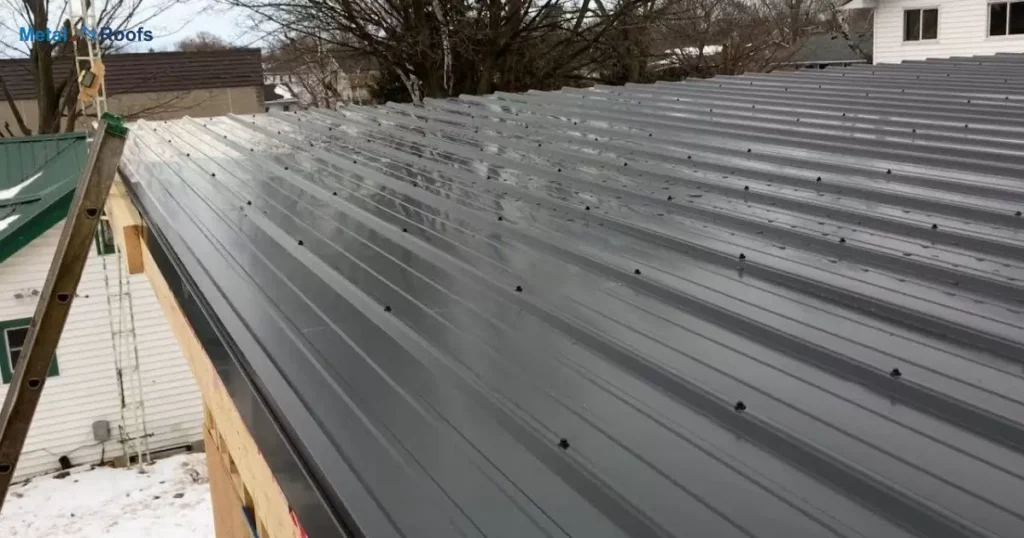
Roofing gauge options vary based on material and climate. Steel typically ranges from 22 to 29 gauge, with lower gauges indicating thicker metal and greater durability. Consultation with a professional helps determine the best fit for your needs and budget.
24-Gauge Metal Roofing
In the realm of common gauge options for roofing, 24-gauge metal stands out. It offers a balance of strength and affordability, making it a popular choice for many roofing projects. Its durability makes it suitable for various climates and structural needs.
Advantages And Disadvantages
Common gauge options for roofing come with advantages and disadvantages. Thicker gauges offer durability but are heavier and pricier, while thinner ones are lighter and cheaper but may sacrifice durability. Finding the right balance is crucial for your roofing needs.
Applications And Suitability
Different gauge options for roofing suit various applications based on material, design, and climate. Thicker gauges provide durability for harsh weather, while thinner ones may suffice for moderate climates or budget constraints. Professional consultation ensures the selected gauge aligns with project needs.
Steel Roofing Gauge Options
Steel roofing offers a range of gauge options, typically from 22 to 29. Lower gauges mean thicker metal, providing increased durability against weather and impact. Thicker gauges, like 22, are sturdier but may come with higher costs. It’s essential to consider factors like your location’s climate and your budget when selecting a gauge.
Consulting with a roofing professional is crucial for choosing the right gauge for your project. They can assess your specific needs and provide tailored recommendations. By understanding the nuances of steel roofing gauges, you can ensure a durable and cost-effective solution for your building’s roof.
Gauge Options For Different Weather Conditions
Choosing the right gauge for your metal roof depends on where you live. In areas with harsh weather like hurricanes or heavy snow, thicker gauges, around 22 or 24, are better. They withstand the pressure and protect your home.
In milder climates, like those without extreme winds or snow loads, thinner gauges, like 26 or 29, may be sufficient. They’re lighter and more affordable. Consulting a roofing expert helps you decide the best gauge for your specific weather conditions, ensuring your roof holds up well over time.
Gauge Options For Different Roof Styles

When it comes to choosing the right gauge for your roof, it’s essential to consider your roof style. Different roof styles have varying requirements. For instance, a steeply pitched roof might need a thicker gauge to withstand high winds.
On the other hand, a flat or low-pitched roof may require a lighter gauge to prevent excessive weight. Consulting with a roofing professional can help determine the best gauge option for your specific roof style. They can assess factors like material type, structural integrity, and local climate to ensure optimal performance and durability.
Gauge Options For Semi-Durable Roofs
Choosing the right gauge for semi-durable roofs is vital. For steel, gauges range from 22 to 29, with lower numbers indicating thicker metal. Thicker gauges offer better durability against weather elements.
The gauge selection should consider factors like budget and climate. Consultation with a roofing professional ensures the optimal choice for your specific needs. Aluminum and copper also vary in thicknesses, providing options for different requirements. Professional advice helps navigate these choices effectively.
Gauge Options For High-Maintenance Roofs
When considering gauge options for high-maintenance roofs, material, design, and climate are key factors. Steel roofing, available in 22 to 29 gauge, offers varying levels of durability. Thicker gauges withstand damage better but come at a higher cost.
Aluminum and copper alternatives also vary in thickness, each with its own durability and pricing considerations. Consulting a professional helps determine the best gauge based on specific needs and budget, ensuring optimal performance and longevity.
Frequently Asked Questions
What Gauge Metal Is Good For A Roof?
The appropriate gauge for a metal roof depends on factors like material, design, and climate, with steel typically ranging from 22 to 29 gauge for varying durability and cost.
Which Is Stronger, 26 Or 29 Gauge Metal Roofing?
When it comes to strength, 26 gauge metal roofing is stronger than 29 gauge due to its thicker composition.
How Thick Is 24 Gauge Metal Roofing?
24 gauge metal roofing is approximately 0.0239 inches thick, striking a balance between durability and weight.
Conclusion
The gauge of metal for a roof is a crucial consideration. It determines the thickness and durability of the roofing material. While 24 gauge metal roofing is about 0.0239 inches thick, it’s essential to consult professionals for the best choice for your specific project needs.
Thicker gauges offer more strength but can be heavier and costlier. Ultimately, the decision depends on factors like material type, climate, and budget. Steel, aluminum, or copper, each gauge has its benefits.
